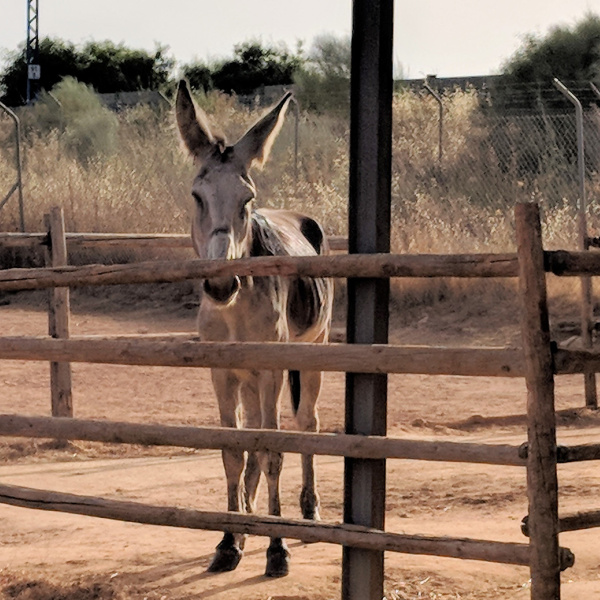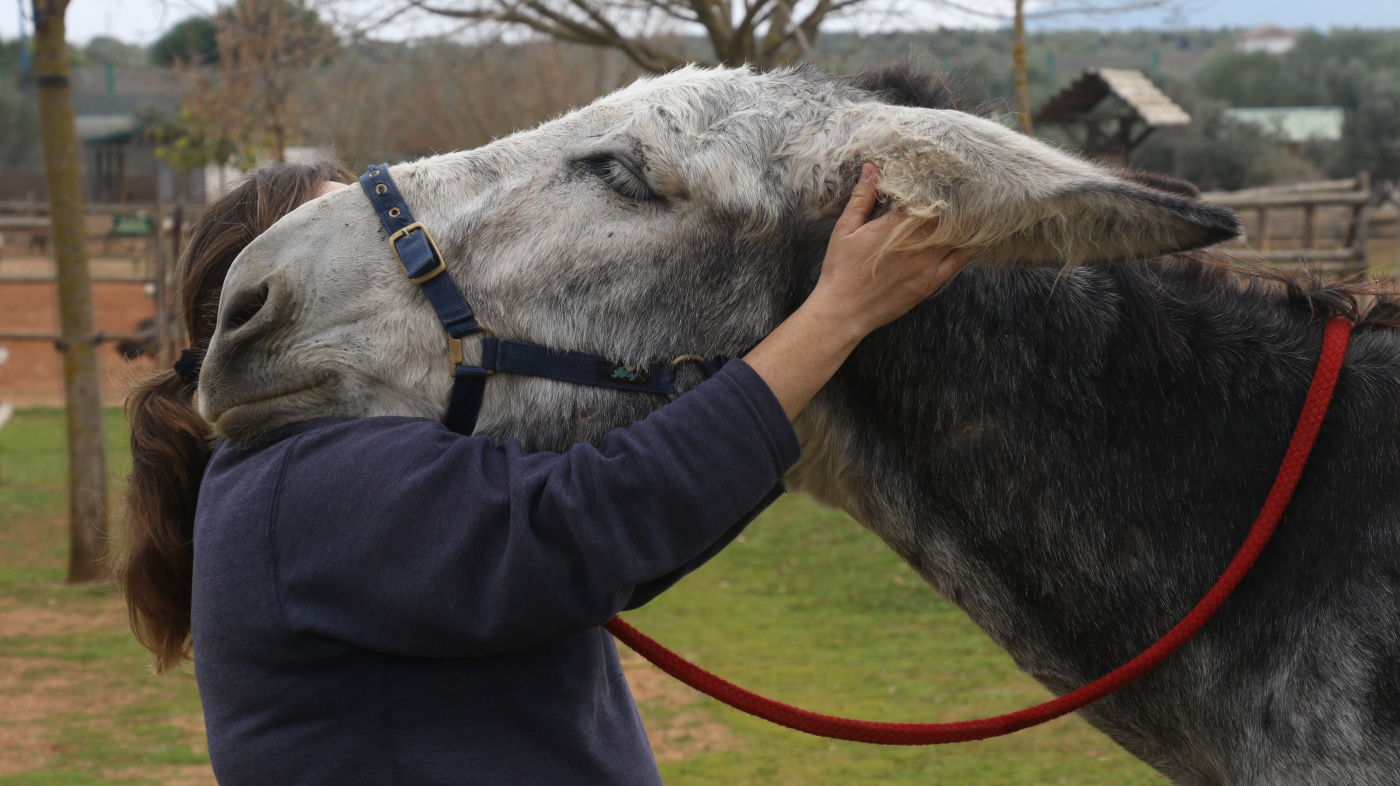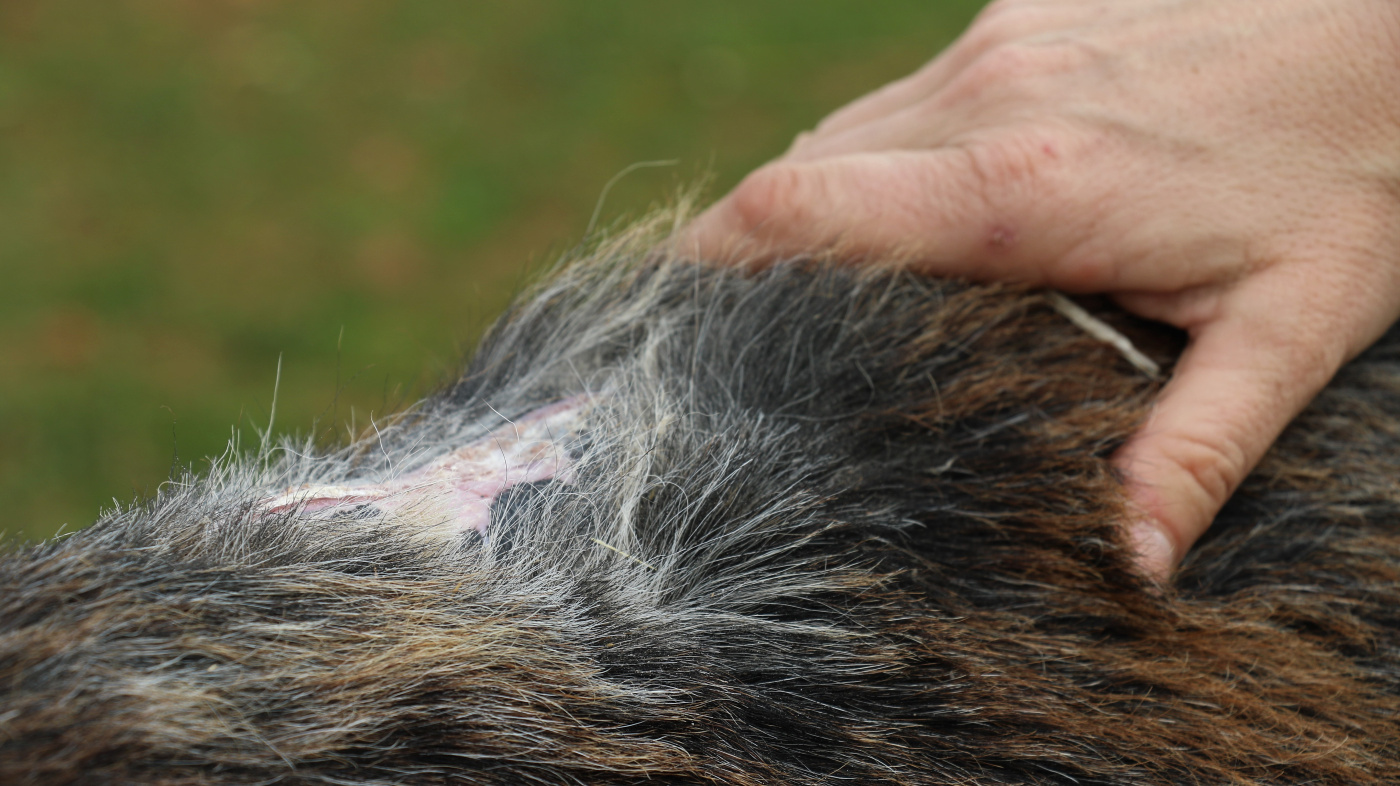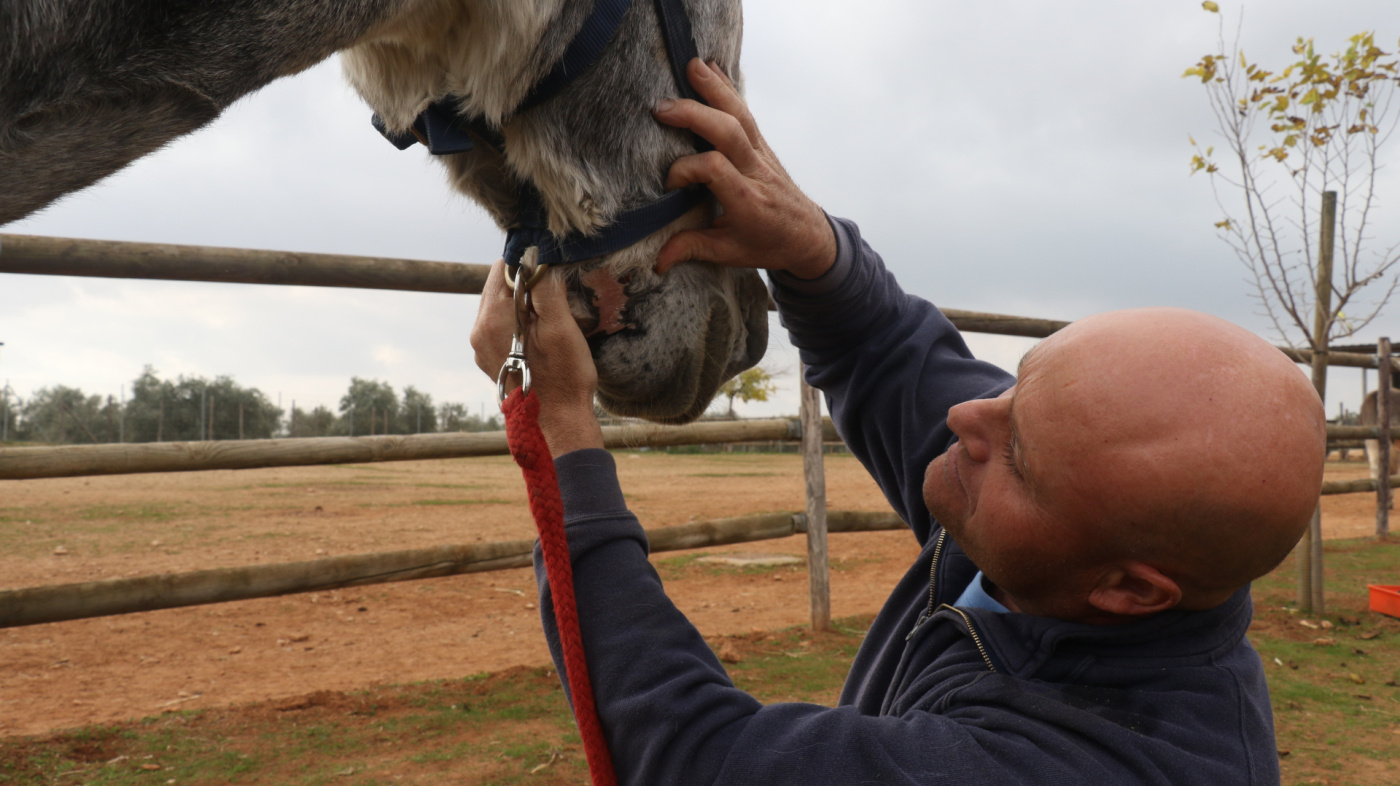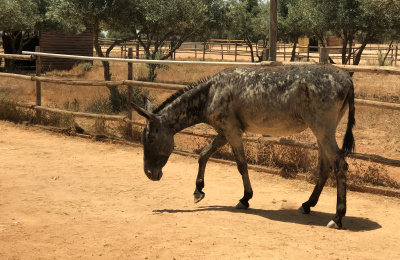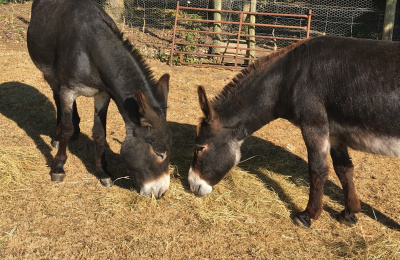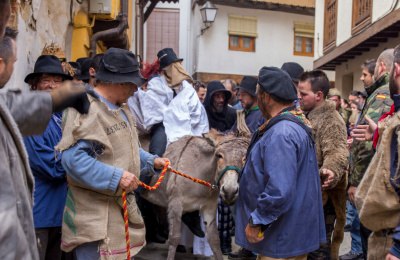Our sanctuary in Spain were quick to offer their help after a donkey was found tied to a tree, shaking and thrashing around in distress.
El Refugio del Burrito, received a desperate call from a woman in Berja, southern Spain after she found the donkey tied to a tree, with no water or shelter from the 39C heat. The concerned woman explained how she could see the donkey was clearly in distress – shaking his head and thrashing around – and on closer inspection was horrified to find he had wounds on his back that were plagued by flies, maggots and wasps.
She sent us a video, taken on her mobile phone, and we could see instantly that this donkey needed our help, fast. Our team began contacting local authorities, and made their way out to the location.
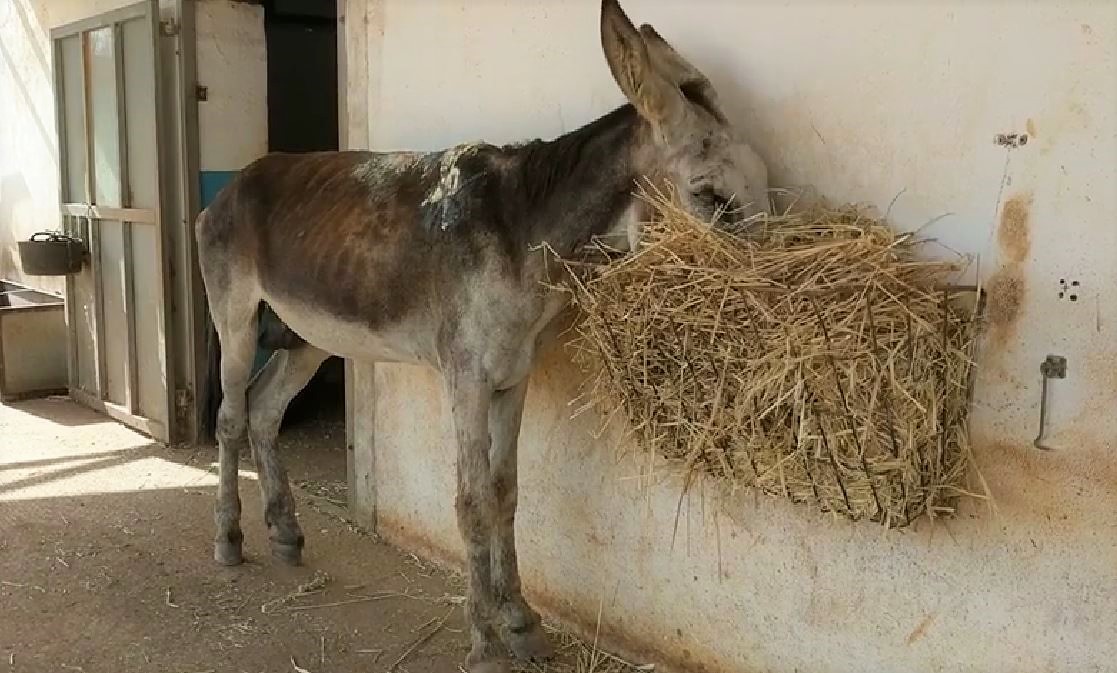
Wounds and scars
The authorities confirmed that the donkey did not have a microchip and was clearly being mistreated. He had been used by his owner to pull a cart collecting rubbish and scrap metal. Unfortunately, a combination of being overworked and made to wear an unsuitable harness had left the donkey with severe open wounds to his back.
He also had a scarred and deformed jaw, from the use of a ‘perrillo’ - a cruel piece of equipment used to control equines. A perrillo has sharp metal teeth and is similar to the ‘serreta noseband’, however, the perrillo sits under the jaw instead of across the nose. When used with force, the metal teeth break through the skin and flesh.
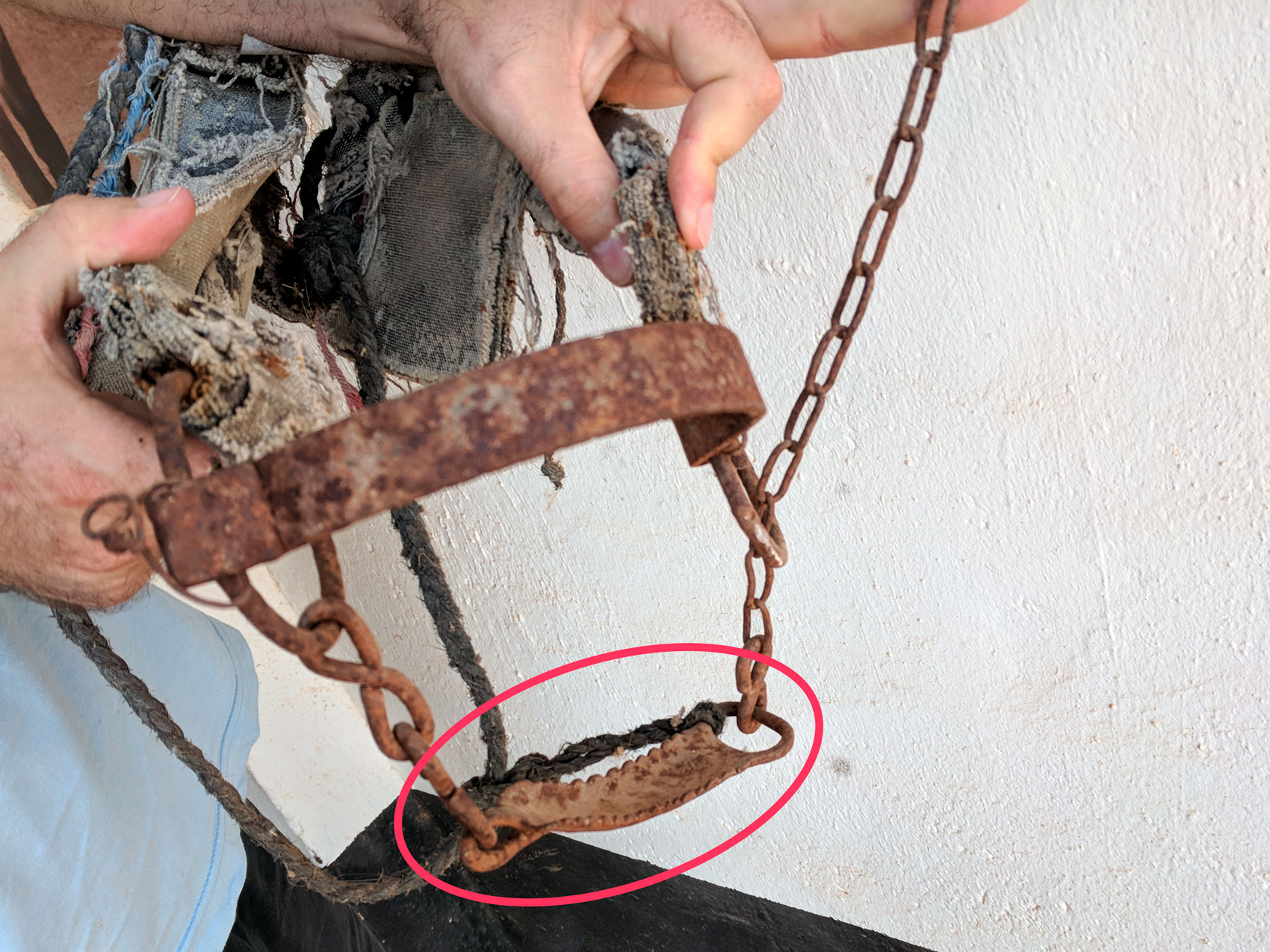
'Bad cross'
The local Police of Berja (Almería) seized the donkey, and arranged for him to be taken to a safe place until our team could reach him.
On arrival, our vet provided urgent assistance to make him comfortable enough to travel the distance back to the sanctuary. The donkey, who we named Pedro, was given a thorough assessment once safely in our care.
Pedro was extremely underweight, and his despondent behaviour suggested he was in pain. His teeth were in bad condition and his mouth full of ulcers. The wounds on his body and jaw were cleaned and treated, but the injuries to his back were worrying.
Pedro’s bad harness had left him with a painful and potentially fatal infection along part of his spine – a condition called ‘fistulous withers’, known locally as ‘bad cross’, as it affects the area where the donkeys’ cross marking lies. There is a possibility Pedro may need surgery to recover from this infection.
His condition had been made worse by the fly and maggot infestation, something which is common in the summer and when wounds occur and are left untreated. The problem was so bad in Pedro’s case, that wasps were also attracted – but they were most likely preying on the flies and maggots, so in turn actually doing Pedro some good. But, it was still an incredibly distressing time for him.
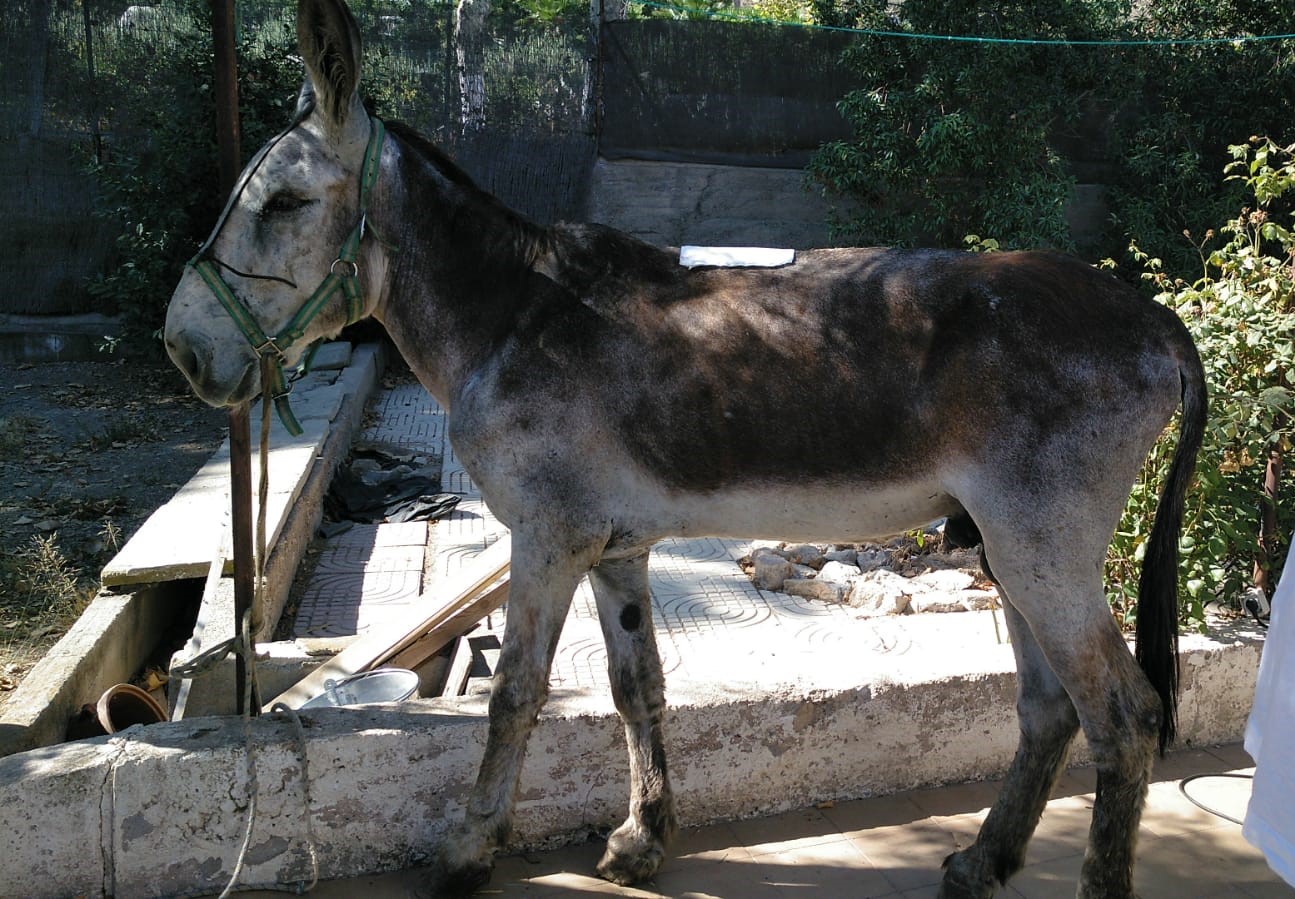
A fresh start for Pedro
Pedro's treatment has so far involved a visit from the farrier to correct his hooves, and the equine dentist to treat his teeth. He has had x-rays taken of his jaw and spine, and daily medication including painkillers and antibiotics to try and clear the infection in his withers. Time will tell if we need to go ahead with his surgery, but he is reasonably young (estimated at 10-years-old) so stands a good chance of making a full recovery.
For now, staff are making sure Pedro has everything he needs to keep him comfortable. A close eye will be kept on him to check for any subtle changes in his behaviour which could indicate that he is in pain. His grooms and the vet have already identified that it was painful for him to lower his neck to eat because of the bulge on his withers, so have adapted his feeding trough to a higher position for him.
Pedro, like many donkeys in the world, has worked hard for his owner, and until now his suffering had been ignored. We are so glad to be able to give Pedro the respect he deserves, and a chance to live a life free from pain – as every donkey should.
Spring 2019 update: Looking to the future
Thankfully, following his immediate treatment and a further two weeks of intensive care at our Spanish sanctuary, Pedro's infections were brought under control. Your support means that our wonderful staff members in Spain have restored Pedro to the playful, merry character that he had never previously had the chance to be.
His personality has utterly charmed the vet who helped at his rescue; soon, he will move into a forever home with his vet, where he can spend the rest of his life surrounded by love and care.
